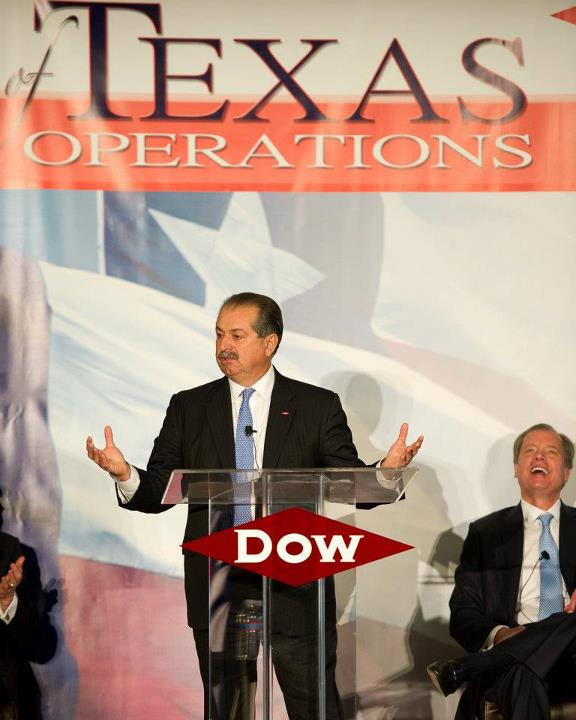US energy groups spar with chemical companies over proposed gas exports
(UPDATE: As of late Friday, Dow Chemical has officially withdrawn from NAM.)
By TENNILLE TRACY
WASHINGTON -- The debate over whether the US should export its abundant new supplies of natural gas is creating divisions within powerful groups that represent some of the nation's largest companies.
 The National Association of Manufacturers and the American Chemistry Council both posted statements online this week in support of natural-gas exports, saying free-trade policies will allow US businesses to expand.
The National Association of Manufacturers and the American Chemistry Council both posted statements online this week in support of natural-gas exports, saying free-trade policies will allow US businesses to expand.
In response, Dow Chemical, a leading opponent of unfettered exports, said Thursday it might leave the groups. Dow's future membership "remains to be seen," said company spokeswoman Nancy Lamb. "We disagree with ACC and NAM and believe their decisions on this issue are being influenced by the oil and gas industry."
Until now, NAM has remained largely silent on the issue, which has divided lawmakers on Capitol Hill and pits energy companies against US manufacturers that have come to rely on inexpensive natural gas to make their products.
Both groups say they adopted formal positions months ago that said natural-gas companies should be able to export their product without restraint. NAM said it reached its position on natural-gas exports after consulting with its members, which "represent a wide variety of sectors in the manufacturing economy."
ACC spokeswoman Ann Kolton said Dow was a "highly respected and highly valued member" of its group.
By showing favor toward natural-gas exports, NAM and the ACC risk alienating high-profile member companies in industries such as chemicals and steel. Those companies, including Nucor Corp. and Celanese Corp., say unlimited shipments to foreign buyers will create added demand for US natural gas, raising domestic prices and threatening investment in US manufacturing.
Dow and its chief executive, Andrew Liveris, have been particularly outspoken in opposition to unchecked US gas exports. They say the US would be better served by exporting manufactured goods rather than raw materials.
ExxonMobil, which is seeking permission to build a natural-gas export terminal in Texas, said Dow and the other companies behind efforts to limit exports were being "opportunistic" and advocating "protectionist" policies. ExxonMobil is also a member of NAM.
Earlier this month, Dow, Nucor and Celanese helped to form America's Energy Advantage, a group that pushes for limits on natural-gas exports. Other members of the group include Alcoa and Eastman Chemical.
Alcoa said it would remain a member of NAM, despite differences of opinion on the export issue. Celanese declined to comment. Nucor and Eastman Chemical didn't return calls for comment.
The idea of exporting US natural gas has surfaced in the last few years after advances in drilling techniques unlocked new supplies that were previously thought to be uneconomical to produce.
The Energy Department is currently reviewing more than a dozen proposals to export gas to countries lacking a free-trade agreement with the US, a category that includes major natural-gas consumers such as Japan and nations in Western Europe. The department released a report last month finding that exports would help the US economy.
"Exports have been and continue to be a critical source of growth and opportunity for manufacturers throughout the United States, and liquefied natural gas exports are no exception," NAM vice president Linda Dempsey said in a blog post Tuesday.
Dow Jones Newswires






Comments